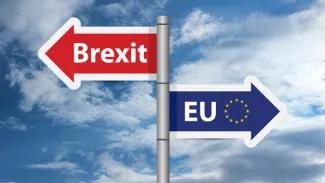The negotiations on the trade deal between the United Kingdom and the European Union are not going as well as they should. The transition period ends December 31st 2020, and if you take into account the time needed for both sides to get the trade deal approved there is almost no time left.
Last week the talks came to standstill. Representatives of both the United Kingdom and the European Union have expressed disappointment and frustration about the negotiations. Both sides are accusing the other of blocking progress.
The BBC reports:
The UK’s negotiator David Frost said a far-reaching free trade agreement could be agreed before the end of the year “without major difficulties”. But it was being held up by the EU’s desire to “bind” the UK to its laws and seek unfair access to fishing waters. The EU’s Michel Barnier suggested the UK’s own demands were “not realistic” and warned of a looming stalemate.
Speaking in Brussels, the bloc’s chief negotiator said “no progress had been made on the most difficult issues”.
Positions on Extending the Transition Unchanged and Opposite
There is also no change when it comes to the position they take on an extension of the transition period. For months now, the European Union has been saying that the time available for the negotiations is very short. Multiple times they have said they prefer an extension of the transition period, so both parties have more time to come to a deal.
The United Kingdom still refuses to ask for an extension. Prime Minister Johnson keeps stating that there has been enough delay when it comes to Brexit. He wants it done and over with. No extension.
The Dance is Over
The BBC further reports:
Former EU Commission President Jean-Claude Juncker used to describe Brexit talks as being like a “dance” and regularly rolled out the stock phrase that “it takes two to tango”. There’s no dancing anymore. Today Michel Barnier made clear he’d rejected any such romantic terms for these trade negotiations, telling reporters it was neither “a dance nor a tango or any other kind of dance”. He said the teams weren’t “even in the same room” and this wasn’t nearly as effective as getting together around a table. The hours of screen time have led to an impasse, with both sides now urging the other to change strategy, and to understand the other’s position more clearly.
Read the full story by the BBC here.
The Issues at Hand
The Washington Post is writing about the main differences that need to be solved.
The two sides remain at odds over a range of key issues including fishing and the role of high courts in settling future disputes.
EU leaders and U.K. Prime Minister Boris Johnson are scheduled to have a summit at the end of June, likely by video, to take stock of the talks’ progress.
…
Britain wants a “Canada-style” free-trade deal that would involve the elimination of tariffs and quotas on most, if not all, goods, along with agreements on services and a range of other issues. The EU says Britain can’t have that without signing up to a swath of the bloc’s regulations on environmental standards, workers’ rights and state aid. Otherwise, they say, there wouldn’t be a level playing field.
Read the full article here.
If both parties don’t agree the United Kingdom will leave the European Union without a trade deal. With both economies already having taken a hit by the coronavirus, this will add to the economic challenges ahead.
Be in the Know
Follow relevant news on Brexit via our Brexit Support page. For Brexit and other important updates, follow our Company Page on LinkedIn.














